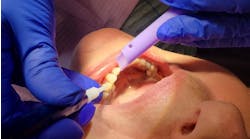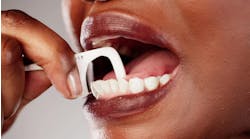Director's Message: What do you say to 'Insurance won’t cover that'?
When patients say, "I can’t afford it,” “My insurance won’t cover it,” “Need to speak with my spouse,” “I’ll do it when I win the lottery,” “Stuff at work is to crazy right now,” “Can’t do it now because my son /daughter needs to finish with braces (dance, sports or fill in the blank),” and/or “If it isn't broke, then I’m not fixing it,” what do you say in return?
----------------------------------------------------------
Consider reading
----------------------------------------------------------
For many professionals, that’s the end of the conversation. Or, they will say the default phrase, “Well, we will just send in a pre-authorization anyway, and I’ll see you at your next appointment.” After such a discussion, what happens to your confidence and frustration levels? The confidence level usually goes down, and the frustration level goes through the roof! After all, you thought the patient understood the importance of treatment and how it relates to their overall health. Yet, they said no!
Don't lose the connection with the patient
Many oral health professionals have a strong “nurturer” archetype. We care so much about our patients’ health and finances that we feel responsible for their decisions and for their oral health. Sometimes, it seems we care more than they do!
When supporting doctors and their teams in treatment and money conversations, I help them to move beyond this perceived conversation finish line and go beyond. Going beyond means creating a different conversation where you begin to stand in the fire for your patients. It’s not about scripts or magical phrases. These types of tactics may work and, more accurately, may make you feel pushy, obnoxious, sales oriented, and not authentic in your conversations with your patients. What we all want from one another is to connect. When we connect, we feel a special affinity with the person who we believe really understands us.
“Language comes from our desire to move beyond our isolation and have some sort of connection with one another. Words by themselves are lifeless; they’re inert. They’re nothing more than symbols. So much of our experience is intangible; so much of what we perceive cannot be adequately expressed. And because of that, when we communicate with one another, and we feel we’ve connected, that we’re understood — it’s almost like having a spiritual communion with that person.” — Kim Krizan from the movie “Waking Life.”
When you lose patient connection, there is a mindset shift occurring. This mindset shift is a change in the context of the conversation and how you feel about the treatment that’s recommended. This mindset shift is metaphorically like an athlete running the 400 meter hurdles. When you lose connection and go into “sales or script mode,” you jump over the hurdles of clinically necessary treatment, their health and well-being, and/or your patients’ emotional motivators or concerns. Once you diminish these patient care-based hurdles, the shift occurs. You begin to feel like you are trying to get your patient to do something they do not want to do (even though you know it will benefit their health and smile).
So, the next time you are engaged in a treatment or money conversation and notice you are feeling “salesy or pushy,” realize that disconnect has probably occurred. Take a breath, pause, and hold the possibility for your patient’s oral health. Awareness is a beginning step in my system to increase treatment acceptance. And as you may expect, I’ll share additional steps in future RDH eVillage issues.
Kristine A. Hodsdon RDH, MSEC
Director, RDH eVillage
Kristine’s Disclosures: Kristine is the owner of Dental Influencers, LLC www.kristineahodsdon.com and dental consultant and trainer with Pride Institute, www.prideinstitute.com.





